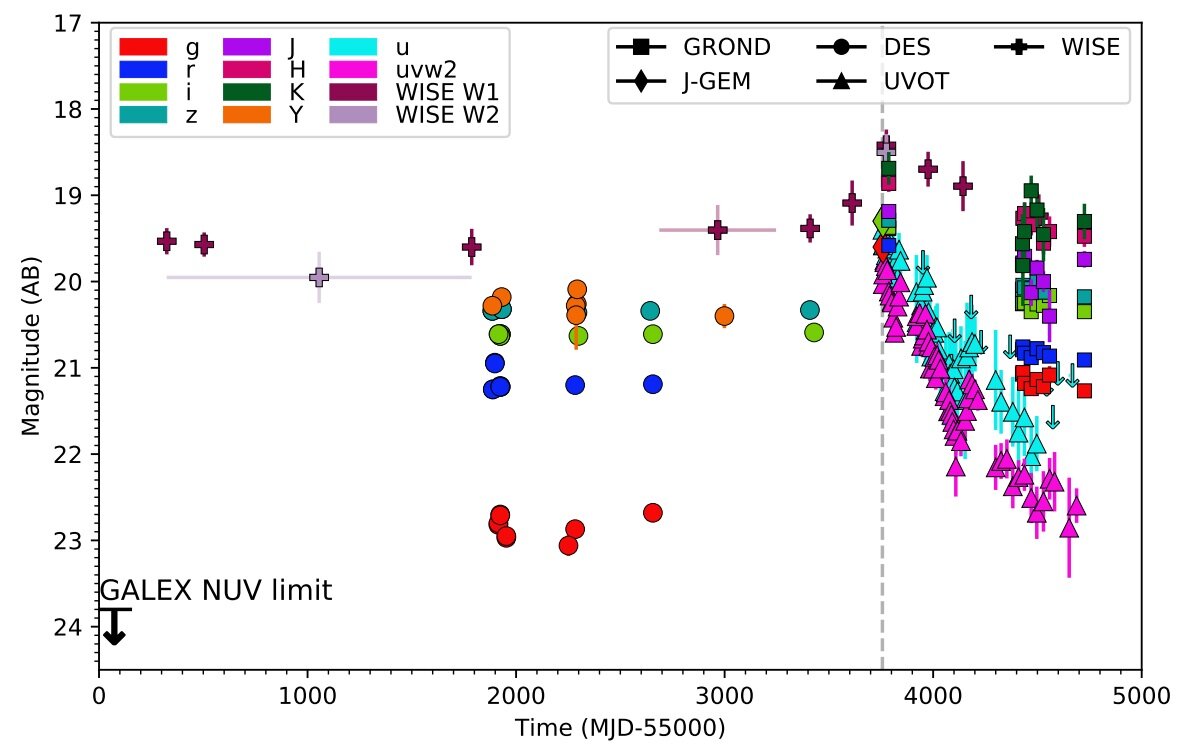Gravitational wave astronomy is such a boon in detecting these types of events early. One of the few consistently positive things to be alive with right now.
Some abbreviations:
Using NASA’s Swift spacecraft, an international team of astronomers has discovered a luminous and slowly-evolving nuclear transient event. The origin of the newly detected transient, designated Swift J221951-484240, is yet to be determined. The finding was reported July 3 on the preprint server arXiv.
Nuclear astrophysics is key to understanding supernova explosions, and in particular the synthesis of the chemical elements that evolved after the Big Bang. Therefore, detecting and investigating nuclear transient events could be essential in order to advance our knowledge in this field.
Recently, a group of astronomers led by Sam Oates of the University of Birmingham, U.K., has conducted follow-up Swift observations of a gravitational wave alert known as S190930t in order to find its electromagnetic counterpart. In result, they identified Swift J221951-484240 (or J221951 for short) with Swift’s Ultra-Violet/Optical Telescope (UVOT).
. . .


